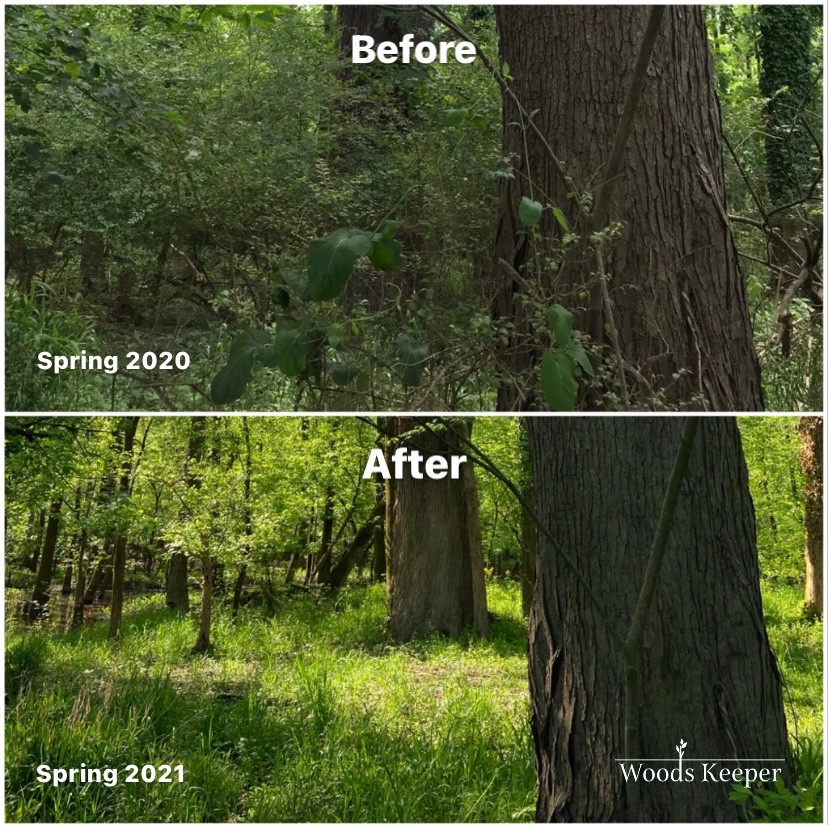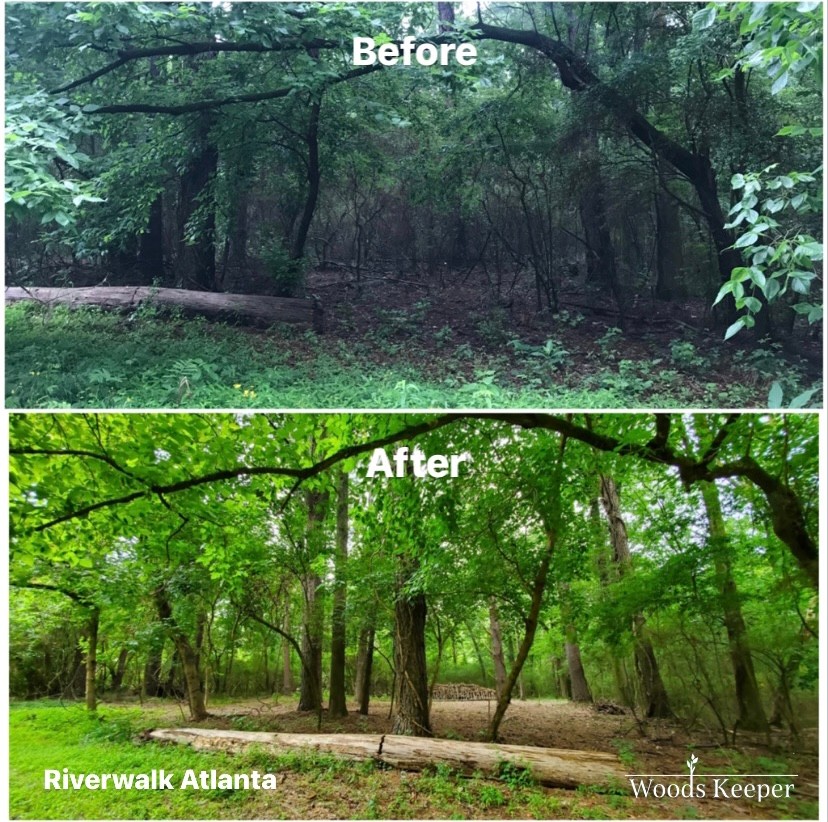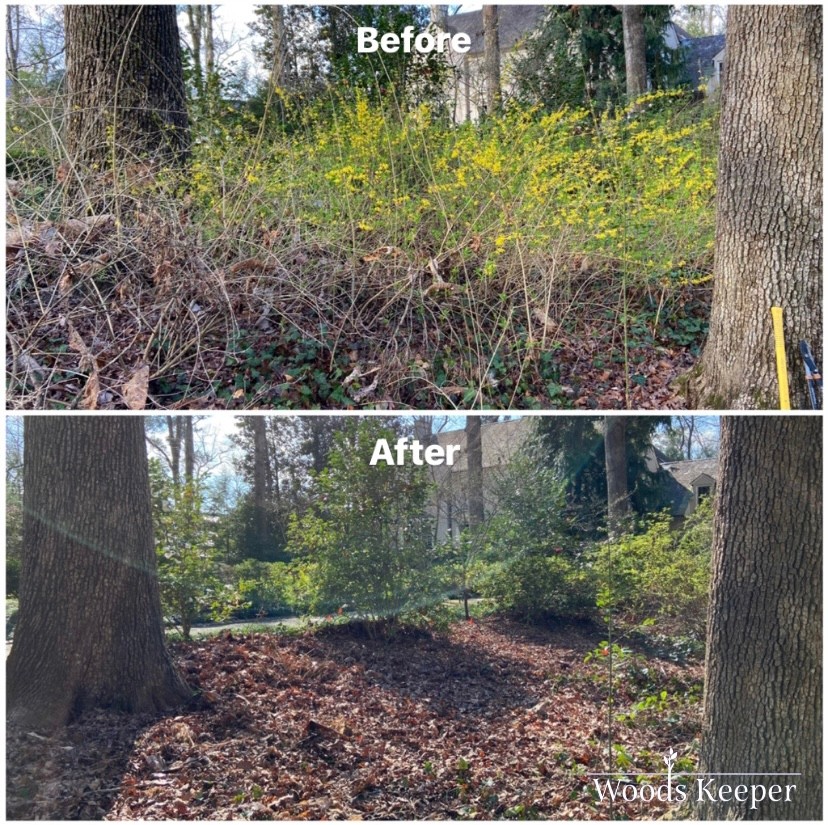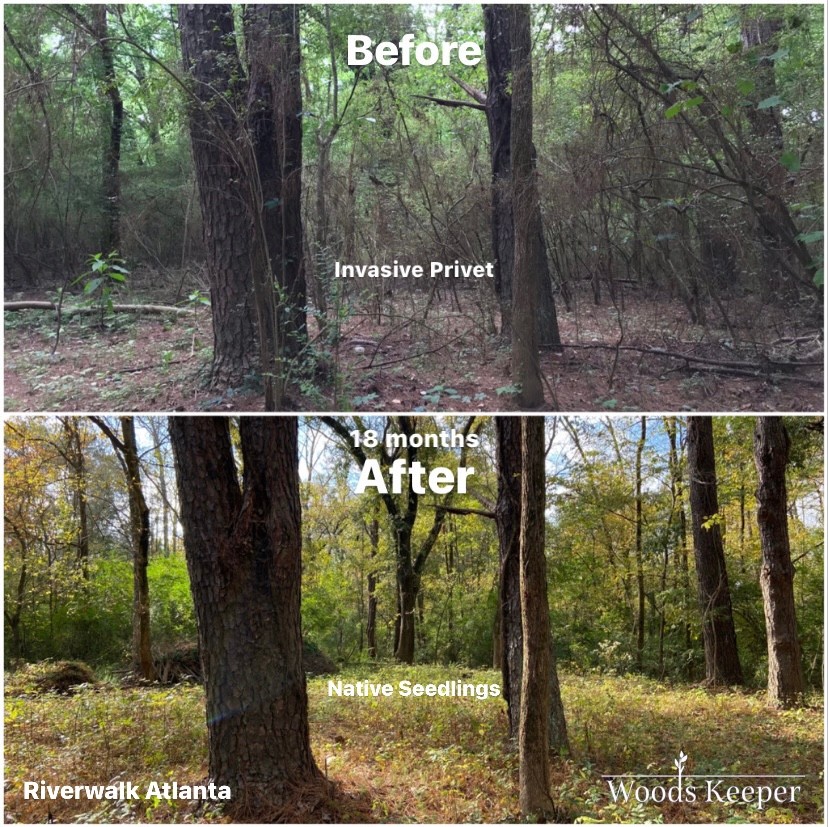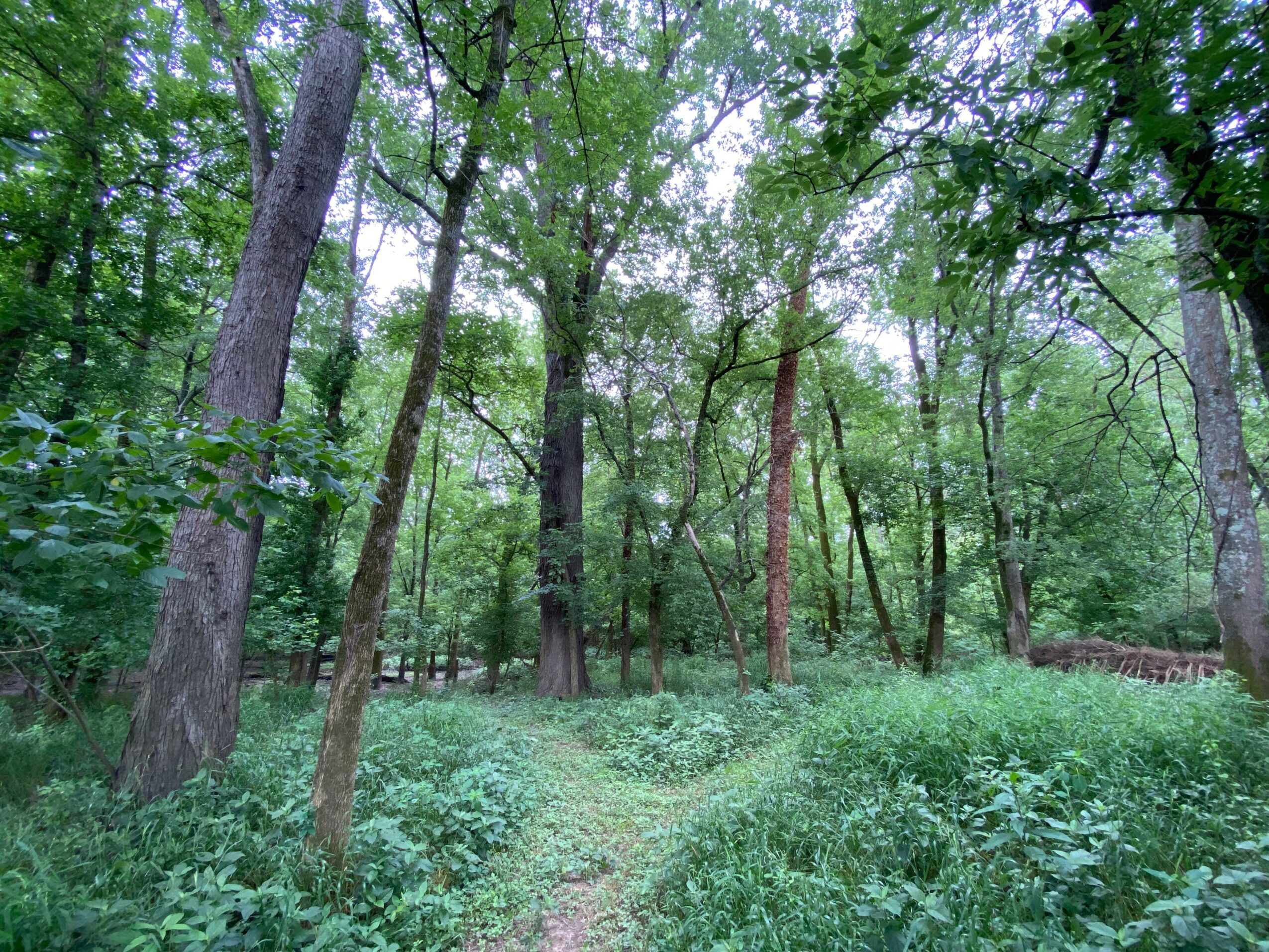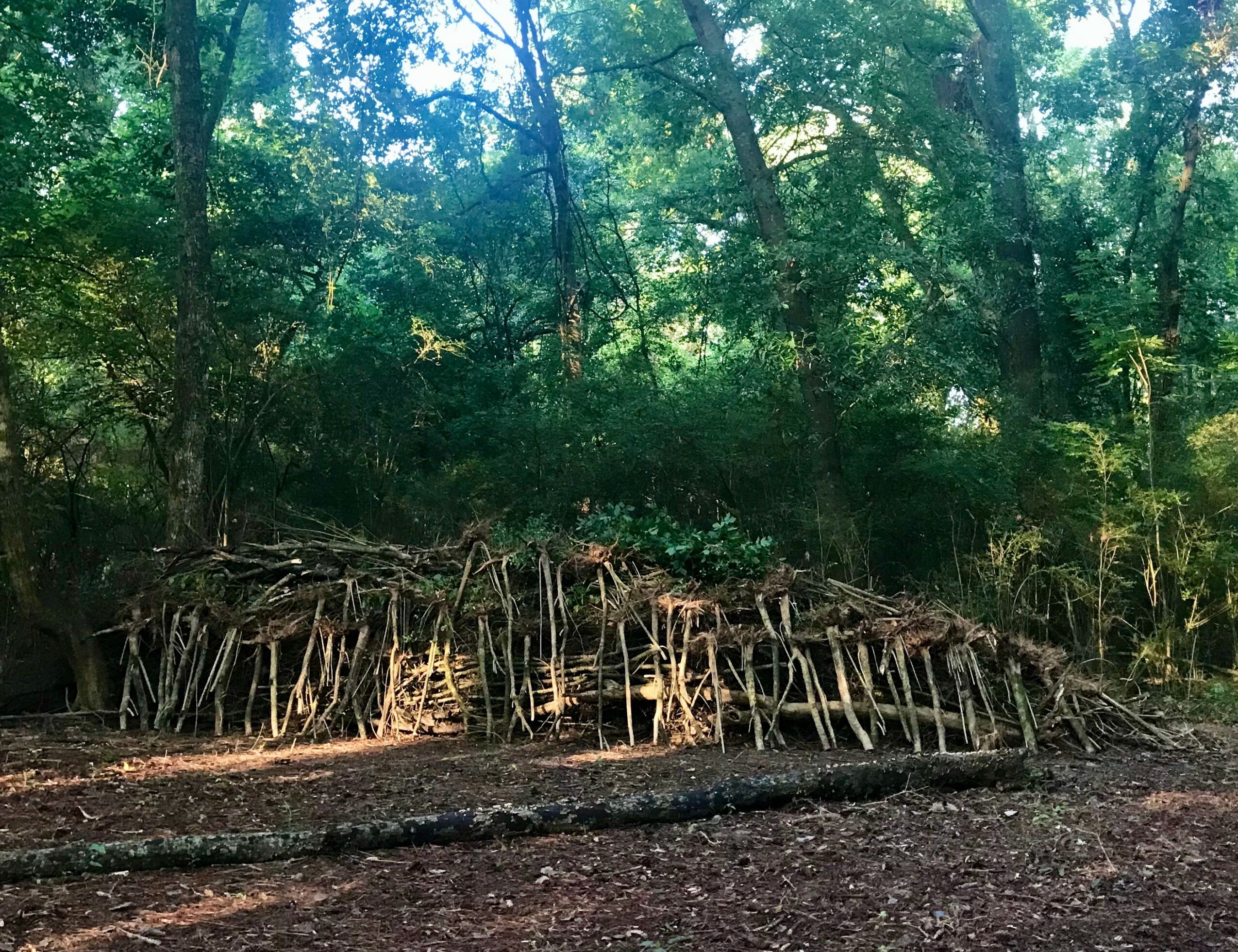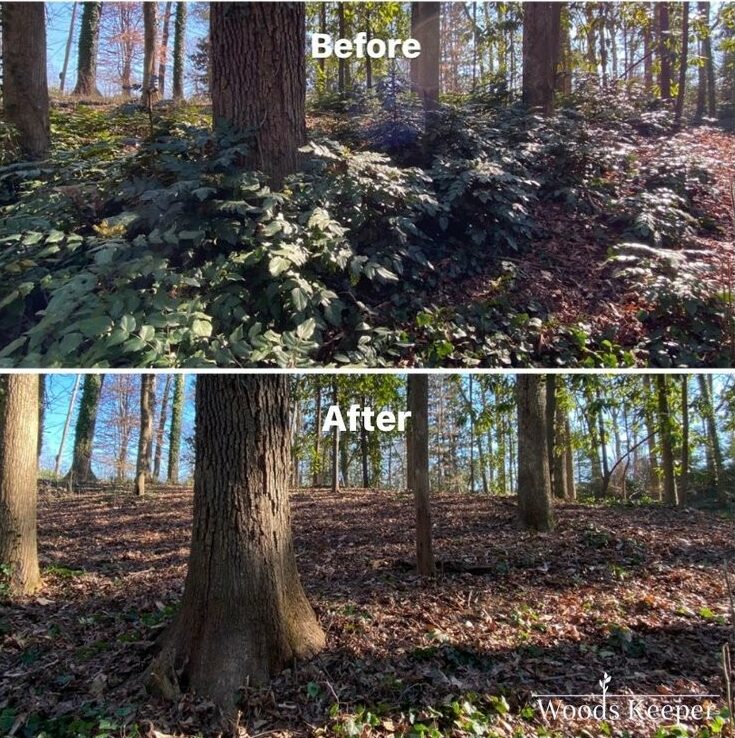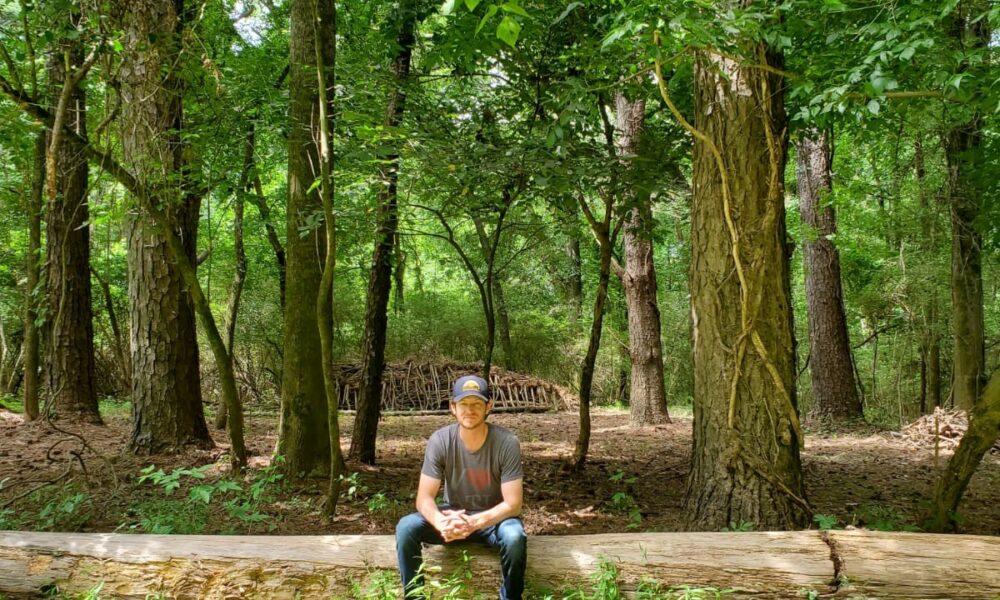

Today we’d like to introduce you to Michael Hudgins.
Hi Michael, so excited to have you with us today. What can you tell us about your story?
While in college in the mid-2000’s, I worked as a restaurant worker and a musician and continued to do so long after I graduated with a bachelor’s in marketing. In 2016 I was looking for a new career path and my now wife, who finds her career at the Carter Center to be very fulfilling, suggested I look into non-profit organizations. That would eventually lead to a part-time service member role with AmeriCorps. Under the tutelage of Caroline Ledlie, Wendy Hogg, and Keith Sharp, the focus of my service hours would be invasive plant removal in a couple of different green spaces in Northwest Atlanta — Spink Collins Park and the future park Riverwalk Atlanta. Working with volunteer groups, I slowly began to fall in love with the work (and the Atlanta forest) as we strove to restore native habitats from the grips non-native invasive plants. My time with AmeriCorps ended shortly before the pandemic in 2020 but the work didn’t stop. I couldn’t stop. I dove in head first into plant identification, forest ecology, and trail maintenance while keeping the focus on invasive plants. Keith Sharp invited me on as a partner and co-leader at Riverwalk Atlanta and that floodplain forest along the Chattahoochee became my refuge during that uncertain time and still is to this day. Some funding became available through Groundwork Atlanta and Park Pride for the work to continue on a regular basis and thus a business was born. Over the next year, I would set the building blocks for what would become Woods Keeper, which would aim to take this practice and offer it as a service to private residents, businesses, and other parks and green spaces. Currently, Spink Collins Park is in better shape than ever and Riverwalk Atlanta is on its way to becoming the first City of Atlanta park with direct access to the Chattahoochee River. It’s important to note that both of those things are true because of the hard work of countless volunteers! Since going full-time in 2021 I’ve expanded the work to dozens of private homes, several commercial properties, a conservation easement, and a regular gig at Chastain Park. I’m very pleased to finally put that marketing degree to good use that I earned so long ago. My mom is very pleased, too. Ah, who am I kidding? I don’t remember anything from college.
I’m sure you wouldn’t say it’s been obstacle free, but so far would you say the journey have been a fairly smooth road?
At this point, I can say it’s going well. I’m busier than ever with no signs of slowing down and will need to look at hiring some help very soon. It didn’t start off so smooth though. Going full-time in September of 2021 coincided with my two years old son starting daycare. My wife and I had heard of the “day care crud” but didn’t expect to be hammered with a sickness that kept us all in bed for a solid week right out of the gate. All the jobs I had lined up that first week had to be postponed. That’s NOT the way I wanted to start! But I found people were understanding and were generally just happy that someone was willing to come and get elbow deep in the invasive plants and restore their wooded areas.
We’ve been impressed with Woods Keeper, but for folks who might not be as familiar, what can you share with them about what you do and what sets you apart from others?
Invasive plants are non-native ones that spread rapidly, displacing native plants and the wildlife that depend on them creating habitat loss and contributing to climate change. Woods Keeper aims to restore native habitats by removing invasive plants by hand. Working carefully, intentionally, and efficiently, the goal is to preserve existing native plants as well as the native seed bank that just waiting for a little space and some sunlight to grow. I currently offer work as a one man crew and/or training to those who want to do the work themselves. I can also lead and teach volunteer groups that want to restore their beloved parks and green spaces. I absolutely love this work. I can’t believe I get to do it every day. Consistency is key when battling invasive plants and I’ve found that when you love what you do it’s easy to be consistent. Another goal is to promote awareness surrounding invasive plants — not focusing necessarily on the doom and gloom of habitat loss but rather on what can be achieved through action. The before and after.
We all have a different way of looking at and defining success. How do you define success?
I try to think of success in simple terms. First and foremost I need a stable income to help provide for my family. If the business remains sustainable with room to grow then I feel it’s successful. As for the work itself, success means a lasting impact. Whether I’m the one doing the work or I’m teaching others, a significant difference can be made from one year to the next with a little bit of consistency. Did we reduce the amount of invasive plants in a particular area? Did we preserve and nurture native growth? If the answer is yes to those questions then we are successful. If I can inspire others to go in their own backyards to tackle invasive plants then that is a form of success, too. That’s what organizations like Homegrown National Park and Native Habitat Project aim to do and I’m here for it! Let’s build that awareness.
Pricing:
- $312.50/day
Contact Info:
- Website: woodskeeper.com
- Instagram: instagram.com/woodskeeper
- Facebook: facebook.com/woodskeeper
